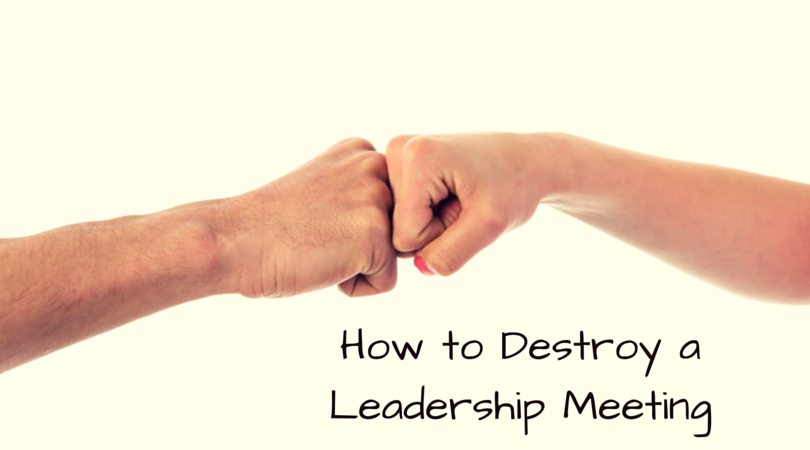Even when you try hard to do it the right way, things can unravel quickly.
When you have a leadership team meeting that goes sideways, you really notice it. And when you have one that goes sideways and it’s your fault you notice it even more.
Especially after you’ve enjoyed the unity that comes from building toward a healthy leadership or management team.
A subject of controversy: The dress code
Never has there been a more controversial topic at Mavidea Technology Group than our dress code. It always seems as if conversations centered on that topic are very heated and taken very personally by each participant.
Today was no different.
A little background: It’s always been my own personal goal at Mavidea for every Mavidean to look sharp.
This is because I’ve always wanted Mavideans to look and feel like they’re on their game — from the way they perform, to the way they speak, to the way they dress.
Truth be told, I would love to show up each day in a pair of shorts and a tank top (and I’m serious about wearing a tank top, ha-ha…tickets to the gun show?).
But it always happens — especially when the weather is warming and spring is in the air – that team members will ask if maybe we would have more fun serving others (our mantra) if we did it in more comfortable clothing.
As we all know that in a healthy team, it’s not about what each individual wants. It’s about the decisions we make as a team to give up individual interests for the greater good of the company.
So what do you do when you have opposing sides to a thorny issue? How does a good leader handle it? To be honest…by doing the opposite of what I did.
Things NOT to do.
Here’s how the meeting actually went down: I grew very defensive very quickly. When my own alignment with our policy was questioned, I shut down like an alligator clenching his jaws on his prey.
I became the opponent, not the teammate. Instead of engaging in conversation focused on progress, I debated as if it was an argument I needed to win.
I was condescending. I found myself working hard to side-step questions. I found myself being dismissive of other people’s perspectives because they didn’t align with my own.
My body language even stunk!
I was shooting darts by peering directly into the eyes of people who were presenting an opinion that was different than mine.
I wanted them to know that I was frustrated with the things they were saying. I wanted them to know I didn’t agree with them.
Without saying it out loud, I wanted to convey that I was frustrated with what each one of them were saying.
In the end, I simply checked out. I grew silent and checked my text messages once or twice as my teammates continued to try to get the conversation back on track.
The whole discussion led nowhere and the only result was creating bad feelings.
My mother would be so proud of me!
What did I risk?
In the aftermath of this contentious meeting, I’m stuck wondering: How are people going to engage with me the next time? Is my team going to be afraid to raise issues openly and engage because I behaved childishly on a topic that was important to them?
Because the meeting didn’t end in a healthy resolution of conflict. It didn’t bring us closer to unity, clarity or a close inter-personal bond.
We decided nothing. And I’m pretty sure everyone left as frustrated as I was.
I spent the rest of the day trying to apologize and reconcile.
How to recover from “nuclear” meetings.
Meetings that go nuclear can derail an entire organization…sometimes for a very long time. Even when you try hard to do it the right way, things can unravel quickly.
It doesn’t take much to get way off track when the subject is an important one with several opposing opinions. The time that you let pass before you get back on track will only make it more difficult.
I’m having some personal conversations today.
Instead of saying, “That’s the way it is,” and walking away, I realize I probably did some real damage.
A personal apology to my team.
Hopefully our track history and our experience together will bring forgiveness and a return to a unified direction. Hopefully, you will give me the benefit of the doubt.
Because any time you get off the course, it’s how you rebound that really defines you. The important part is how we heal. By healing we become stronger and not become fractured when conflict inevitably occurs.
The healthier we are in our daily interactions, the more able we are to tackle conflict in a team building way — rather than an obstacle to building our common trust.
I want to take this opportunity to apologize to the rest of my leadership team. You have my word that I will be a better leader and teammate the next time we meet.
